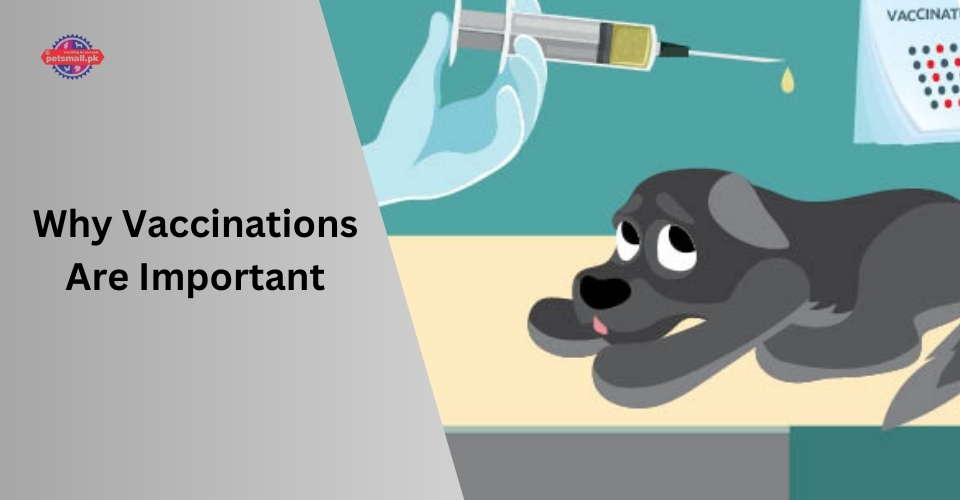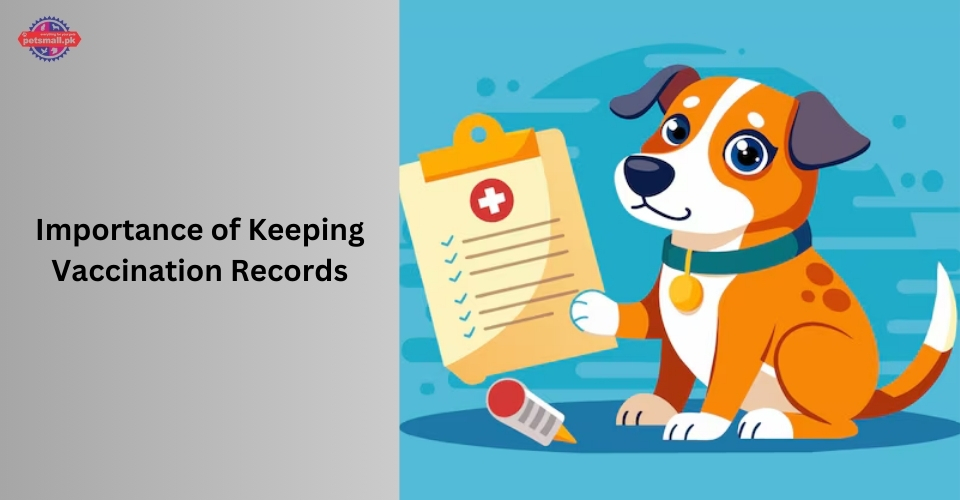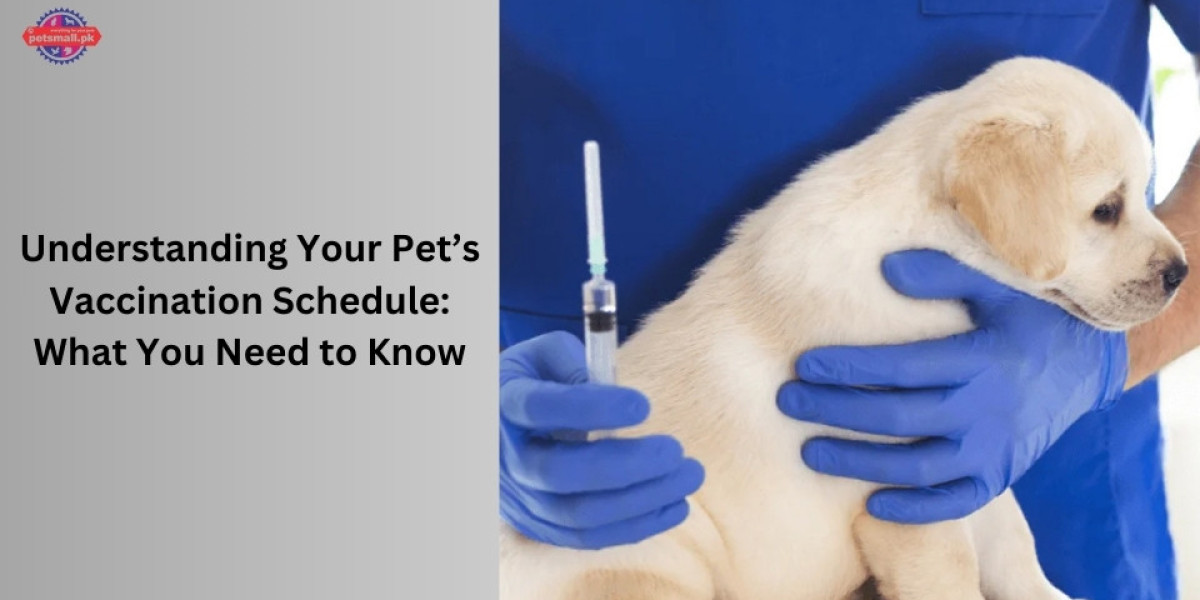At Pets Mall, we understand that keeping your pet healthy is a top priority for every pet owner. One of the most crucial aspects of pet care is ensuring that your furry friends receive their vaccinations on time. Vaccinations protect pets from various diseases, some of which can be severe or even life-threatening.
In this comprehensive guide, we will explore the importance of vaccinations, the typical vaccination schedule for pets, and what you need to know to keep your pets safe and healthy.
Why Vaccinations Are Important

Vaccinations are essential for several reasons:
Prevention of Disease:
Vaccines help prevent infectious diseases that can affect your pet’s health. Conditions like rabies, parvovirus, and distemper can be fatal, and vaccination is the best way to protect against them.
Herd Immunity:
When a significant number of pets are vaccinated, it helps create herd immunity, reducing the overall prevalence of diseases in the community. This is particularly important for pets that cannot be vaccinated for medical reasons.
Legal Requirements:
In many areas, certain vaccinations, such as rabies, are required by law. Keeping your pet up-to-date on vaccinations ensures compliance with local regulations.
Peace of Mind:
Knowing that your pet is vaccinated gives you peace of mind, allowing you to enjoy your time together without worrying about potential health risks.
Common Vaccinations for Pets
For Dogs
Core Vaccinations:
- Rabies: Required by law in many areas, rabies vaccination is crucial for preventing this fatal disease.
- DHP (Distemper, Hepatitis, Parvovirus): This combination vaccine protects against three serious diseases.
- Bordetella (Kennel Cough): Recommended for dogs that are frequently in contact with other dogs.
Non-Core Vaccinations:
- Lyme Disease: Recommended for dogs that spend time outdoors in tick-infested areas.
- Leptospirosis: Important for dogs that may come into contact with contaminated water or soil.
For Cats
Core Vaccinations:
- Rabies: Like dogs, cats also require rabies vaccination.
- FVRCP (Feline Viral Rhinotracheitis, Calicivirus, Panleukopenia): This combination vaccine protects against several common feline diseases.
Non-Core Vaccinations:
- Feline Leukemia (FeLV): Recommended for cats that go outdoors or are at risk of exposure to other cats.
- Feline Immunodeficiency Virus (FIV): Discuss with your vet if your cat is at risk.
Typical Vaccination Schedule
Puppies
- 6-8 Weeks: First DHP vaccine, Bordetella (if needed)
- 10-12 Weeks: Second DHP vaccine, first rabies vaccine
- 14-16 Weeks: Third DHP vaccine, second rabies vaccine
- 1 Year: Booster shots for DHP and rabies, and any non-core vaccines as needed
Kittens
- 6-8 Weeks: First FVRCP vaccine
- 10-12 Weeks: Second FVRCP vaccine, first rabies vaccine
- 14-16 Weeks: Third FVRCP vaccine, and any non-core vaccines as needed
- 1 Year: Booster shots for FVRCP and rabies
Adult Pets
- Annual or Biannual Vaccinations: After the initial series, adult pets typically require booster shots every 1 to 3 years, depending on the vaccine and local regulations.
Factors Influencing Vaccination Schedules
Age:
Puppies and kittens have different vaccination needs compared to adult pets.
Health Status:
Pets with certain health conditions may require a modified vaccination schedule.
Lifestyle:
Pets that are frequently exposed to other animals or that spend time outdoors may need additional vaccinations.
What to Expect During a Vaccination Visit
When you bring your pet to Pets Mall for vaccinations, here’s what you can expect:
Health Assessment:
The veterinarian will conduct a thorough health check to ensure your pet is healthy enough for vaccination.
Vaccination Administration:
Vaccines are typically administered via injection, and the process is quick and relatively painless.
Post-Vaccination Monitoring:
Your pet may be monitored for a short period to ensure there are no immediate adverse reactions.
Documentation:
You will receive a vaccination record, which is important for future visits and compliance with local laws.
Signs of Adverse Reactions
While vaccinations are generally safe, some pets may experience mild side effects, such as:
Lethargy:
Your pet may seem tired or less active for a day or two after vaccination.
Mild Fever:
A slight increase in body temperature can occur.
Swelling at Injection Site:
Some pets may have a small lump where the vaccine was administered.
In rare cases, more severe reactions can occur, such as difficulty breathing, swelling of the face, or vomiting. If you notice any of these symptoms, contact your veterinarian immediately.
Importance of Keeping Vaccination Records

Maintaining accurate vaccination records is crucial for several reasons:
Proof of Vaccination:
Many boarding facilities, groomers, and pet parks require proof of vaccinations before allowing pets to enter.
Health Monitoring:
Keeping track of your pet’s vaccination history helps you and your veterinarian monitor their health and ensure they receive timely boosters.
Travel Requirements:
If you plan to travel with your pet, certain destinations may have specific vaccination requirements.
At Pets Mall, we recommend keeping a dedicated folder for your pet’s health records, including vaccination certificates, health check-up notes, and any other relevant documents.
Conclusion:
Understanding your pet’s vaccination schedule is vital for their health and well-being. By ensuring your pets receive their vaccinations on time, you are protecting them from serious diseases and contributing to the overall health of the pet community. Regular check-ups with your veterinarian at Pets Mall will help you stay informed about your pet’s vaccination needs and any changes in local regulations.
Remember, a healthy pet is a happy pet! Make sure to prioritize vaccinations as part of your pet care routine, and enjoy many happy years with your furry friends. If you have any questions about your pet’s vaccination schedule or need to book an appointment, feel free to reach out to us at Pets Mall. Your pet’s health is our top priority!








